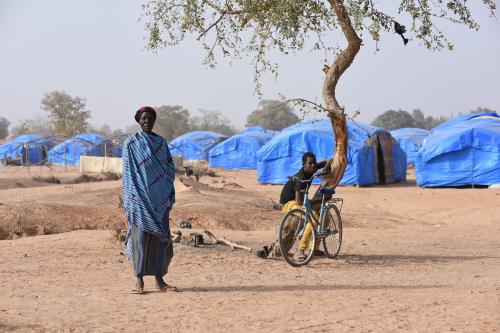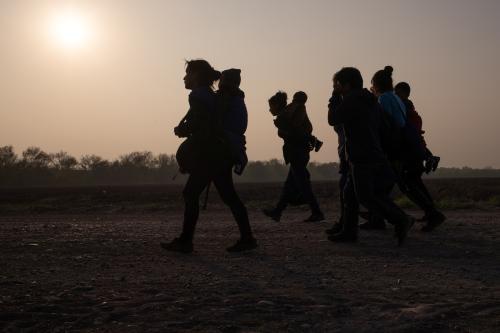This week the Congress of the Mexican state of Chiapas unanimously adopted the first law in Mexico on internal displacement. The Law for Prevention and Response to Internal Displacement incorporates the high human rights standards of the Guiding Principles on Internal Displacement and will enter into force 60 days after its official publication.
This is wonderful news for the 24,000 or so displaced persons in Chiapas and a testament to Chiapa’s political leadership. Displacement in Chiapas is protracted, stemming from the 1994 violent conflict with the Zapatistas where largely indigenous groups were driven off their land and cannot return because their land is still occupied by others. Although the Peace Accord of San Andres in 1996 brought an end to the armed conflict, displacement has dragged on. The government has had great difficulty identifying land which can be given to the internally displaced persons (IDPs) to enable them to start anew. Solutions have been elusive and displacement has continued for the past 18 years. This new law affirms the rights of IDPs and offers hope that renewed efforts will be made to find durable solutions for those displaced.
The Brookings-LSE Project on Internal Displacement also played a key role in supporting this new law. In June 2011, two government representatives from Chiapas participated in our annual course on Internal Displacement held in Sanremo in collaboration with the UN High Commissioner for Refugees (UNHCR). They were so inspired by what they learned about IDPs in the course that they decided to push for a law on displacement at the state level. When they returned home, they invited UN and Brookings staff to Chiapas in September to provide training to high level government officials in the state, including members of Congress from the four main groups of parties, the governor’s office, the highest court in the state, human rights organizations and IDP groups. The training, organized by a consortium of UN agencies and Brookings seems to have provided the necessary impetus and technical expertise for the law to have been developed and passed.
Chiapas has led the way and now it’s time for the federal government of Mexico to do more on the national level to respond to the needs of Mexico’s internally displaced population. So far, the government has yet to acknowledge the problem of internal displacement in the country, much less to adopt laws and policies upholding the rights of those who have been displaced by drug-related and criminal violence in the country.
There is a lot of speculation about the extent of displacement in Mexico, but few hard facts. Perhaps because of its links to drug/gang violence, it is rarely spoken of publicly. In January 2012, the Mexican government reported that more than 47,000 people had been killed in drug-related violence in the country since President Felipe Calderón began a crackdown on drug cartels in late 2006. Many of these deaths are certainly drug traffickers and the police and military seeking to confront them. But many are surely civilians who either were threatened or attacked by the cartels or who were simply caught in the crossfire.
Wherever there is widespread violence, there is displacement, but (with a few exceptions) reports on displacement in Mexico are largely anecdotal. In 2010 researchers at the University in Ciudad Juárez, one of the cities most affected by criminal violence, estimated that 200,000 people had abandoned the city since 2007, of whom half had left the country. A journalist in Ciudad Juarez writing a year later referred to 111,000 abandoned houses in the city. The Internal Displacement Monitoring Centre reports that Parametria, a private consultancy firm, estimated in 2011 that 1.6 million people had been displaced in the country as a result of the violence and insecurity over the previous five years, but the methodology used in coming up with these figures is not public. Working with IDPs is dangerous in many parts of the world and particularly so when people are displaced by armed groups working in support of the murky world of drug trafficking.
Displacement is probably widespread, particularly in the communities affected by drug-related violence. And so far, the Mexican government has not acknowledged either the need to collect reliable data on internal displacement nor to adopt policies ensuring that IDPs receive the protection and assistance they need. One positive sign, however, was the decision last fall to create Províctima, the only government office set up to assist IDPs and other victims of the violence.
And now the state government of Chiapas has adopted a law to respond to the needs of the displaced in its state. I hope the Mexican federal government is inspired—or shamed—by this action and will now begin to take steps necessary to ensure the rights of those displaced by violence within its borders.


Commentary
Good News from Chiapas— But a Larger Challenge for Mexico
February 17, 2012